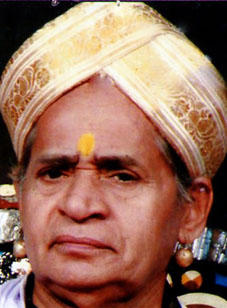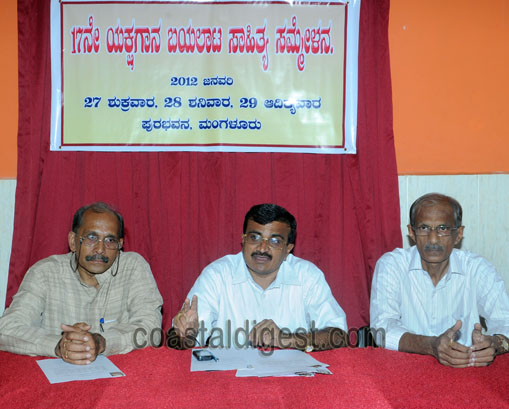Bengaluru, Aug 4: Police barricades, yellow banners, walls with a fresh coat of paint and the sounds of bhajan mark parts of Ayodhya as the city awaits its big day Wednesday, when the first brick will be laid for the Ram temple.
Ayodhya is decked up for the bhoomi pujan that will be attended at the Ram Janmabhoomi by 175 people, who figure in a select guest list of seers and politicians topped by Prime Minister Narendra Modi.
Concerned over the spread of coronavirus, the authorities are encouraging others not to come to the temple town, asking them to mark the occasion by celebrating at their homes. The groundbreaking ceremony will be telecast live.
Roads leading to Ayodhya display hoardings with the picture of the proposed Ram temple and of Ram Lalla, the infant Ram, the deity now housed in a makeshift temple.
Around the town’s Hanumangarhi area – named after a well-known temple which Modi will visit on Wednesday – both police sirens and ‘bhajans’ in praise of Ram are heard.
Most of the shops in the locality wear a new look, with their fronts painted in bright yellow. A large number of policemen were deployed there on Tuesday. Some sat in the sweet shops, waiting for their next instructions.
Roads leading into the area are barricaded. Yards of yellow cloth and marigold garlands were being hung on poles.
Even on the day before the event, security checks on vehicles heading to Ayodhya begin from adjoining Barabanki district itself on the Lucknow-Ayodhya road. Policemen take down details, including mobile numbers of the travellers.
Senior Superintendent of Police Deepak Kumar said the focus of the force is on maintaining the Covid-19 protocol.
“So we are not going to allow any outsider to enter Ayodhya city,” he said. Prohibitory orders are also in force and not more than four people will be allowed to gather.
“The markets and shops will remain open but with strict adherence to the Covid protocol,” he said. Outsiders will be stopped from entering the city, but Ayodhya residents will be allowed in if they produce any identification document.
“We are also carrying out random checks on people living in Ayodhya to ensure that no outsiders are staying here,” he said.
The city’s temples and mosques will remain open, but no other religious event – except for the bhoomi pujan – will take place on Wednesday.
Pickets have been set up at sensitive points in the city.
Sub-inspector Ram Chandra Yadav and constables Avnish Kumar and Ankit Chaudhary man the Terhi Bazar Chauraha picket near the Ram Janmabhoomi site.
"We are here for the past some days, and were on duty on the Rakshabandhan day. Duty comes first and only after that come other things in life, like festivals," Yadav said.
Mayank Gupta, who runs a restaurant, was handing out food packets to policemen, his customers.
"For the last two months, I have been providing tiffin to them twice a day. There are around 100 policemen to whom I supply tiffin," Gupta said.
 Mangalore, January 20: Senior Yakshagana artiste Surikumeri K Govinda Bhat has been chosen to preside over the seventh Akhila Karnataka Yakshagana Sammelan, which will be held at the Town Hall in the city for three days from January 27,
Mangalore, January 20: Senior Yakshagana artiste Surikumeri K Govinda Bhat has been chosen to preside over the seventh Akhila Karnataka Yakshagana Sammelan, which will be held at the Town Hall in the city for three days from January 27,





Comments
Add new comment